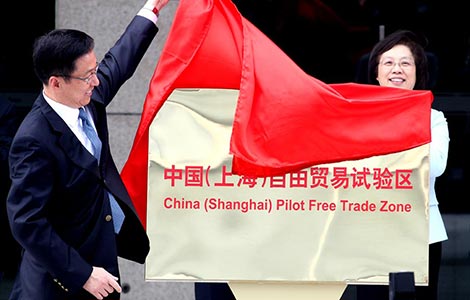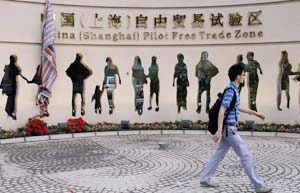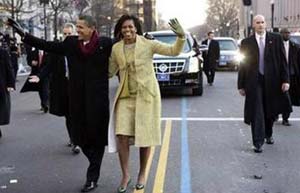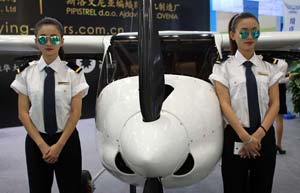

|
 |
|
Photo taken on late Sept. 28, 2013 shows a general view of the Waigaoqiao Bonded Area (L) and the Waigaoqiao Bonded Logistics Park of the China (Shanghai) Pilot Free Trade Zone in Shanghai, east China. The China (Shanghai) Pilot Free Trade Zone started operation on Sept. 29, launching a test bed for the Chinese leadership's drive of deepening market-oriented reforms and boosting economic vigor. [Photo/Xinhua] |
The government vowed to enhance the efficiency of customs administration, improving the speed and ease with which imports and exports can clear customs and the quality and range of services national customs authorities provide, according to Liu Deping, director of the border check department of the General Administration of Quality Supervision, Inspection and Quarantine.
"To facilitate easier trade, authorities have lowered the threshold for inspection and quarantine to avoid rigorous inspections and customs assessments and therefore reduce companies' costs," said Liu.
He noted that 18 directives, including the launch of an information sharing platform and an early warning system, are being rolled out to relieve administrative burdens for companies.
"The waiver or less restricted export product examinations will save companies time and money spent renting warehouses," said Zhao Pei'en, a certified public accountant in Shanghai, adding that such reform spells a "substantial bonus" for a wide range of industries.
This will simplify the registration process in setting up a business, said Liu Jun, China chief representative of Northern Melbourne Institute, one of Australia's leading vocational training institutes.
 "In our case, the new framework saves us time and efforts to turn to the Ministry of Education each time we wish to get our programs approved," said Liu, who was cheered by the fact that joint venture educational and job-training institutions are included in the 18 sectors open to foreign investment.
"In our case, the new framework saves us time and efforts to turn to the Ministry of Education each time we wish to get our programs approved," said Liu, who was cheered by the fact that joint venture educational and job-training institutions are included in the 18 sectors open to foreign investment.
Liu said he is seeing a decentralized government structure, and hopes that the zone encapsulates all the functions companies need to get businesses going.
China's economic and social development requires more intense reforms, as unnecessary government intervention in the private sector has resulted in abuses of power, said Sun Lijian, vice-dean of the School of Economics at Fudan University.
"I think the zone is imperative in carrying out bolder experiments in relaxing the control of the public sector and making the government leaner and efficient," Sun said.
 Shanghai inaugurates Free Trade Zone
Shanghai inaugurates Free Trade Zone
 New BMW 5 Li hits Chinese market
New BMW 5 Li hits Chinese market
 China to officially launch Shanghai FTZ on Sept 29
China to officially launch Shanghai FTZ on Sept 29
 Time to get smart
Time to get smart
 Leaders' car picks around the world
Leaders' car picks around the world
 Shining models at 15th Aviation Expo China
Shining models at 15th Aviation Expo China
 2013 Beijing Intl Jewelry Expo kicks off
2013 Beijing Intl Jewelry Expo kicks off
 Microsoft revamps Surface to challenge Apple
Microsoft revamps Surface to challenge Apple